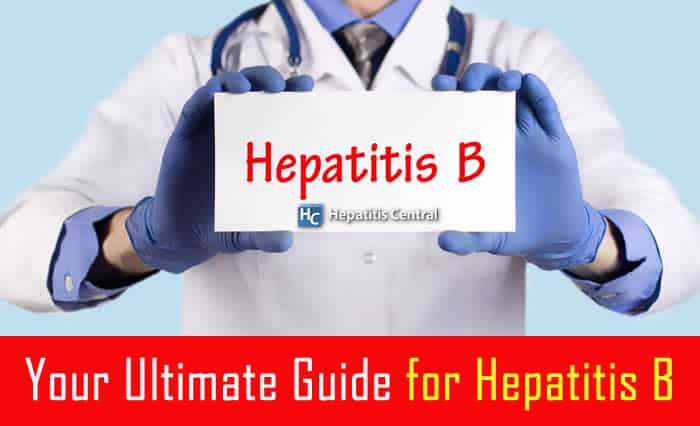Your Ultimate Guide for Hepatitis B


While hepatitis B virus (HBV) research, coverage, money, and general attention is often eclipsed by hepatitis C, according to a recent article published in Lancet Gastroenterology Hepatology journal, a collective team of experts spanning educational and research institutions across the globe have recognized HBV as “a global public health challenge on the same scale as tuberculosis, HIV, and malaria (1).”
That’s nothing to bat your eyes at. Luckily, it is attention and focus like this that the same experts believe will lead to the eradication of HBV in the not-so-distant future (3).
Worldwide, 260 million people have chronic HBV and, according to the World Journal of Clinical Cases, an estimated one-third of the world’s population has been infected with HBV (4). Granted, only 5% of that population represents chronic cases that lead to cirrhosis or liver cancer; but the HBV issue is still a glaring one.
Hepatitis and liver disease has slowly been climbing up the leading causes of death list domestically and worldwide for decades (5). That’s why 2019 is an important moment to brush up on the lesser-known hepatitis B virus.
- Is hepatitis B contagious?
- How is HBV transmitted?
- What are the symptoms of hepatitis B?
- What does a positive HBV diagnosis mean?
All hepatitis B things considered below.
Diagnosis
Because HBV is difficult to distinguish between other forms of hepatitis, it’s important to get laboratory confirmation if you’re symptomatic, high risk, or just suspect you may have hepatitis.
Another tricky aspect of the diagnosis stage is that most people who are newly infected are not symptomatic in any way (2). That being said, if you eventually experience any of the following acute symptoms, you may be dealing with an HBV infection:
- Jaundice, which is yellowing of the eyes or skin
- Extreme fatigue
- Nausea, or loss of appetite
- Vomiting, upset stomach, or abdominal pain
Hepatitis B Treatment
For acute cases of HBV, there are no specific treatments. Thus, focus should be aimed at finding natural ways to address symptoms and promote comfort, nutrition, and generally support the liver as much as possible. Always consult your doctor when contemplating new treatment plans or making changes to your diet.
After input from your doctor or dietician, some of the best foods to eat when you have hepatitis B include:

- raw fruits
- vegetables
- and whole grains.
Foods that are fibrous are also helpful for aiding digestion and easing any nausea or abdominal discomfort caused by HBV.
While eating healthy is important, it’s equally crucial to avoid saturated fats or highly fatty foods in addition to alcohol, drugs, smoking, and pain relievers containing acetaminophen and paracetamol. All of the above are tough for your liver to process and can contribute to scarring (2).
In chronic cases of HBV, more treatments become available, most of which are oral antiviral medications that can slow the progress of cirrhosis and liver cancer and generally increase long term survival rates (6).
The World Health Organization recommends the “use of oral treatments – tenofovir or entecavir – the most potent drugs to suppress the hepatitis B virus (2).” As with acute infections, it’s critical to avoid alcohol, drugs, pain killers, and anything else that can damage the liver or be tough to process.
Are There Natural Supplements to Take For Hepatitis B?
Absolutely. Taking a supplement can be a great way to manage the symptoms you may be experiencing due to acute HBV without spending a fortune. Try and find supplements that use natural ingredients geared towards supporting liver health. Milk thistle is a time-tested natural ingredient and remedy for many HBV symptoms as well as other anti-inflammatory agents like turmeric and hemp oil, all of which are readily available and affordable options.
Hepatitis B Transmission
HBV is highly contagious and is transmittable through contact with infected bodily fluids such as saliva, blood, or semen (2). However, the leading cause of transmission is perinatal (from mother to child), often during delivery, or from child to sibling within the first five years of life (4).
Worldwide, only 27% of newborns get a birth dose of HBV vaccine, which is the only thing that truly prevents transmission from mother to child (4). Education, early screening, detection, and outreach are all essential lynchpins in the realistic eradication of HBV.
How Did I Get Hepatitis B?
Besides transmission from parent to child, the adult groups who are most at risk include prison populations, injection drug users, people with multiple sexual partners, healthcare workers or household members exposed to blood or blood products in the workplace, in addition to those who are on dialysis or those who have received organ transplants (2).
If any of the above describes you, you should consult your doctor, seek regular screenings and take every precaution to avoid exposure.
Is Hepatitis B Curable?
While there is a cure for hepatitis C, there are only prophylactic vaccines and effective antiviral therapies for HBV. No cure currently exists and The World Health Organization recommends the vaccine for all infants and children 18 or younger (2). One billion people have safely and successfully used the vaccine worldwide since 1982, which represents a turning point in the fight against HBV-related liver disease (2).
Luckily, most cases of acute HBV clear up on their own, but in lieu of a cure for chronic HBV, there is much in the area of promising research being conducted within the scientific community aimed at finding a realistic end to all hepatitis infection in the near future (6).
Most recently, a team of researchers out of Munich victoriously (if not a bit preemptively), declared “checkmate” over HBV. They are claiming victory having illustrated how utilizing “T-cell therapy exploiting new technologies presents an encouraging solution for the treatment of chronic HBV infection and liver cancer that is triggered by the virus (3).”
Sounds very exciting. But while published statements draw much-needed attention to the issue, the realistic timeline for an HBV cure based on these findings is likely quite far off.
In The Meantime
The findings out of Munich are promising and, as researchers prepare for more clinical trials, the most effective and practical thing any patient or caregiver can do in the fight against hepatitis B is to educate and spread information to those who need it.
The timeline from research to an effective cure, and eventually the eradication of HBV could be decades. So, in the meantime, the best steps we can take are promoting screenings, education, and advocating for a proactive, healthy, and natural approach to liver health.
1. Revill, P. A., Chisari, F. V., Block, J. M., Dandri, M., Gehring, A. J., Guo, H., . . . Zoulim, F. (2019, July). A global scientific strategy to cure hepatitis B. Retrieved August 6, 2019, from https://www.ncbi.nlm.nih.gov/pubmed/30981686 Published in Lancet Gastroenterology Hepatology journal
2. Hepatitis B. (2019, July 18). Retrieved August 6, 2019, from https://www.who.int/news-room/fact-sheets/detail/hepatitis-b Copyright 2019 World Health Organization
3. Helmholtz Zentrum München - German Research Center for Environmental Health. (2019, June 11). Checkmate for hepatitis B viruses in the liver. ScienceDaily. Retrieved August 6, 2019 from www.sciencedaily.com/releases/2019/06/190611102712.htm
4. Jefferies, M., Rauff, B., Rashid, H., Lam, T., & Rafiq, S. (2018, November 06). Update on global epidemiology of viral hepatitis and preventive strategies. Retrieved August 6, 2019, from https://www.ncbi.nlm.nih.gov/pmc/articles/PMC6232563/ Published by World Journal of Clinical Cases
5. Hepatitis B Cure. (n.d.). Retrieved August 7, 2019, from https://ice-hbv.org/hep-b-cure/hep-b-cure/ Copyright © 2019 ICE-HBV. All rights reserved.
6. Cohen, J. (2019, January). The push is on to cure hepatitis B, a long-overlooked scourge of millions / Emerging Therapies Toward a Functional Cure for Hepatitis B Virus Infection. Retrieved August 7, 2019, from http://www.natap.org/2019/HBV/022519_02.htm







